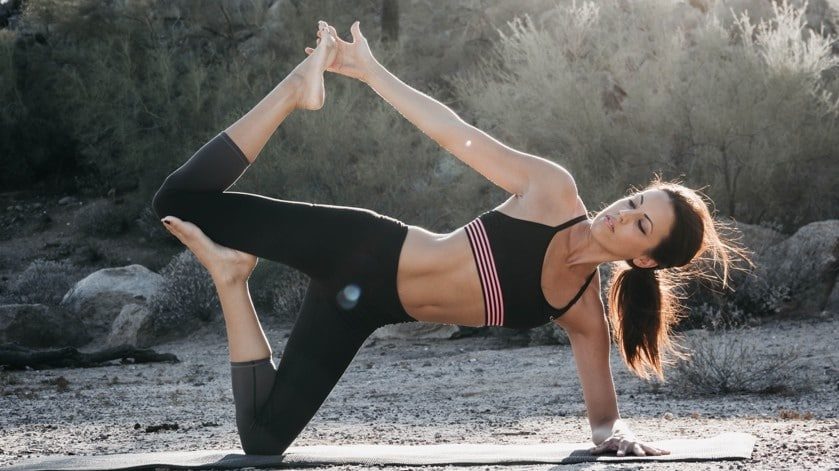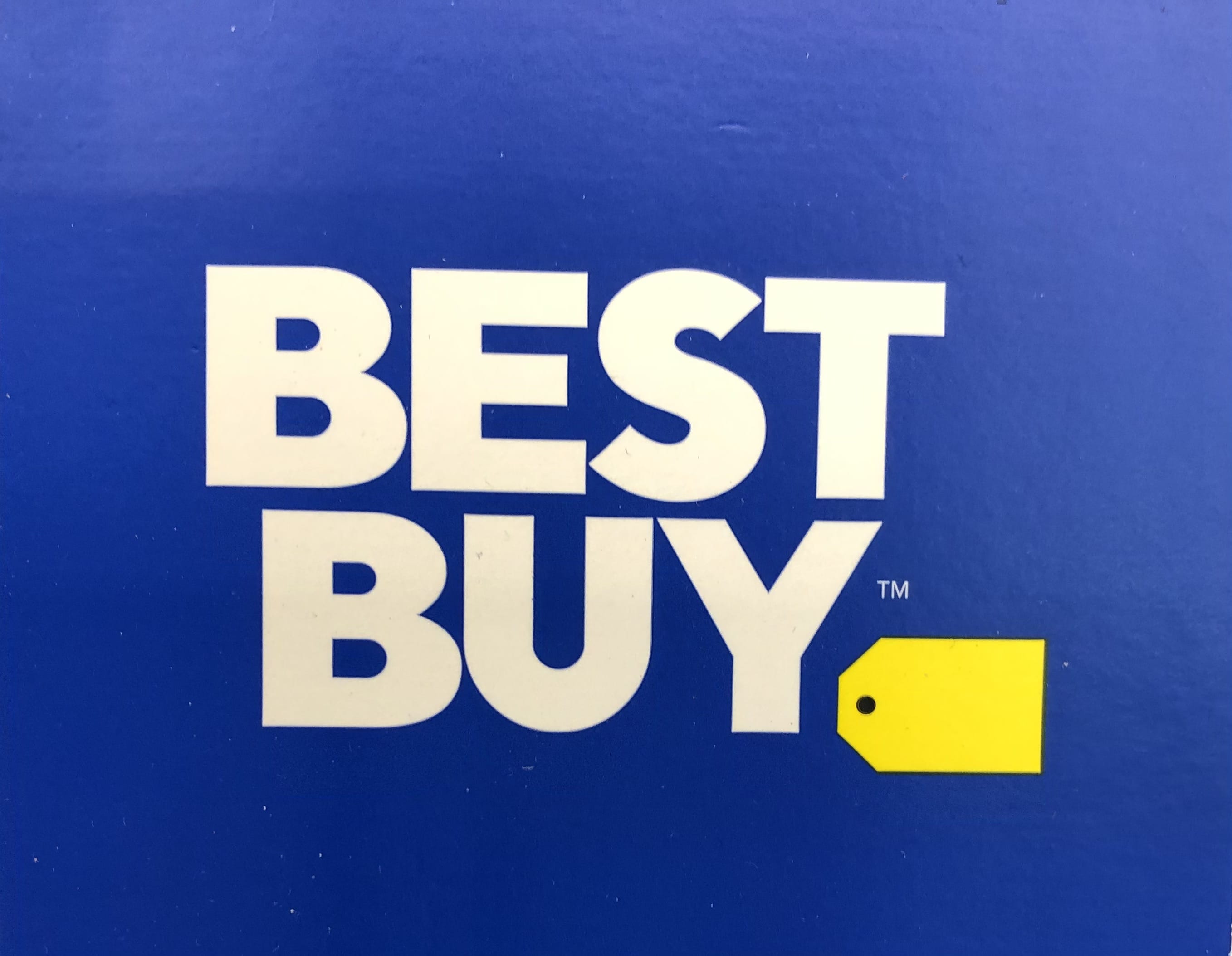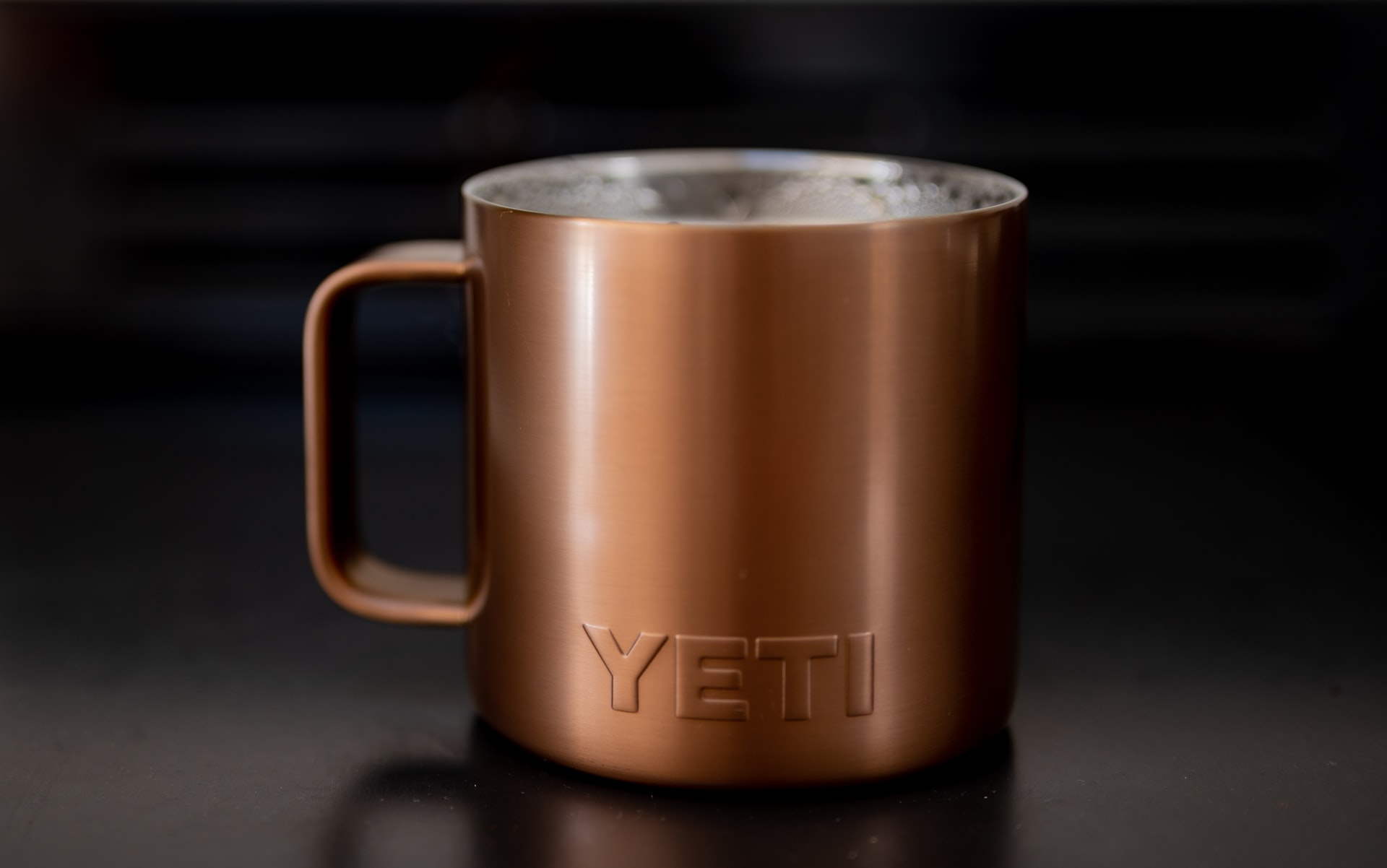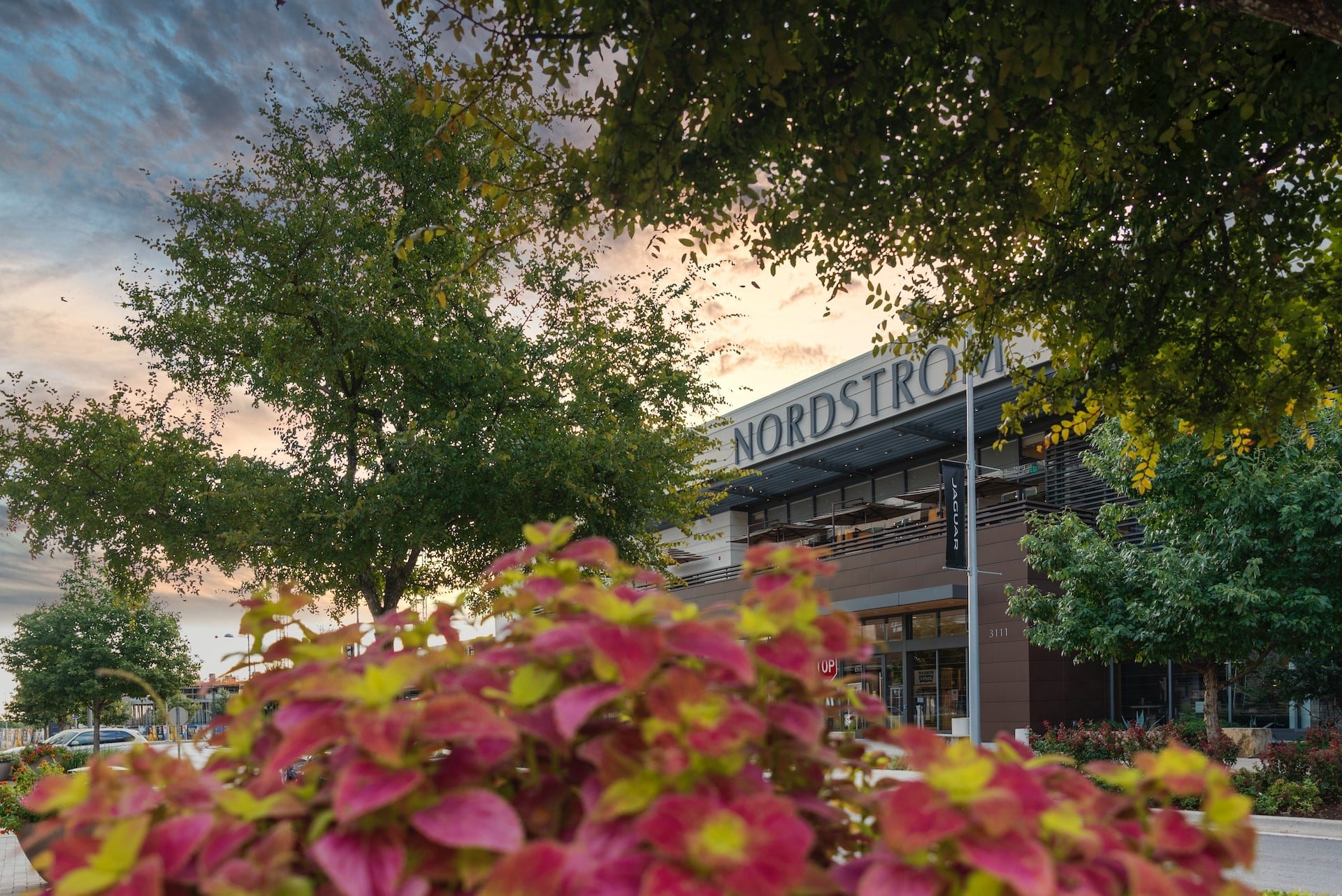Lululemon is a big name in apparels and sports fashion industry. Founded in 1998 in Canada by Chip Wilson, the company is known for it’s premium quality, innovative and distinctive products, especially yoga apparels.
However, Lululemon is obviously, not the only shining star in the sky.
Let’s take a look at Lululemon’s most aggressive competitors and alternatives, giving the company a solid competition.

1. Athleta – a Gap subsidiary
In 2008, Athleta was bought by The Gap for $150 million. It has an outstanding variety of sports-oriented women’s clothes. Athleta is famous for its comfortable clothing designs and has more than 25 stores alone in the US, offering an impressive variety of sports apparels.
Although both Lululemon and Athleta continue to improve the sales, Athleta needs to stylize their collection in an increasingly competitive athletic wear market.
In the recent past, Athleta has focused more on female empowerment like personal fitness gear while Lululemon is focused on high-performing athletes. This has enabled Athleta to double its online sales as more people exercise indoors.
2. Victoria Sports
Victoria sport is the exclusive athleisure division of the famous fashion brand, Victoria Secret. It was launched in 2016. The line offers luxurious wears for sports enthusiasts. Activewear includes sports costumes, gym suits, swimsuits, and inners.
3. Under Armour
Under Armour, a well-developed brand famous for its moisture-resistant fabric started to focus on women’s apparel. A territory Lululemon has held for years.
To attract women, Under Armour is re-establishing itself as a more advanced trendy ad feminine brand, which is definitely a threat to Lululemon.
In September 2020, Under Armour released its women’s only basketball shoe known as HOVR Breakthru. The company also released its latest products under the M+MI line in September 2020. These two products targeting women threaten Lululemon’s market share.
4. Prana – a Columbia sportswear subsidiary
Prana is an American sports clothing company, and their slogan is “clothing for positive change.” The company was acquired by Columbia Sportswear for $190 million in 2014.
The company was established in 1992 in California from where it gradually grew and has now become a well-known brand of the sportswear industry. They are known for their Yoga apparels including their vast range of ‘well-cut pants’ and ‘hippy-trippy tops.’ Other than that, the company also features an impressive line of jackets, pants, skirts, and more.
In 2019, Prana did not compete strongly because it was transitioning. But, this is expected to change in the coming years as the team focuses on brand awareness and solidifies the brand’s position as the stylish outdoor wear. It is projected that Prana will grow by around 5-7% in 2021 and can grab some of Lululemon’s market share in the coming years.
5. Nike
Of course, Nike needs no introduction. The multinational brand is one of the most celebrated names of the sportswear industry. Nike is known to be innovative in its products with a powerful brand image.
It is one of the highest sellers of footwear, apparel, equipment, accessories, and other products. Nike has recently launched its yoga wear, a market dominated by Lululemon. However, Nike’s new collection is cheaper in comparison to Lululemon.
In the recent past, Luluemon has outpaced Nike in growing its sales. But, e-commerce sales growth for both companies is very close to differentiate. Unfortunately, Nike already has a huge lead that makes it difficult for Lululemon to catch up any time soon.
6. Adidas
Adidas is the second-largest sportswear in Europe after Nike. A multinational brand well known for its exercise suits, sports accessories, and footwear, the brand has millions of loyal customers worldwide. But now Lululemon is moving closer in the competition with Nike and Adidas as the company is preparing to step into the footwear industry soon.
Financial capability is crucial for success in head-to-head competition. Currently, Adidas and Lululemon are valued at $51 billion and $38 billion, respectively. But based on Lululemon’s growth rate, experts project that it will become a $50 billion company soon and pass Adidas in five years.
7. Puma
Puma is a German multinational corporation that produces and designs athletic apparel, shoes, and accessories. Founded by the two brothers, Rudolf and Adolf Dassler, the company became the third-largest producers of the sports apparels and accessories. However, the brothers could not keep peace with each other and split in 1948.
That is when Adidas was formed after the split. Puma despite fierce competition from Adidas and other companies maintained its reputation through all these years. The company has outlets in more than 120 countries with almost 11,000 employees worldwide.
Lululemon vs. Puma uses different pricing strategies. Lululemon uses a high pricing strategy, with half of its products retailing up to $20 higher than average.
Puma’s prices are low, ranging between $40 and $60, which enabled it to increase sales by 18.4% in 2019 with double-digit growth in all regions and divisions. Lululemon’s high pricing strategy only makes it harder to catch up to Puma and compete for market share.
8. Sweaty Betty
Sweaty Betty is a famous UK brand which was founded by Tamara and Simon Hill-Norton. The brand is popular for its women’s activewear. This feminine-inspired brand has more than fifty boutiques in the United Kingdom.
Sweaty Betty has expanded its scale by launching six boutiques in the United States as well. The company also sells exceptional yoga clothing like ubiquitous legging and much more.
9. Outdoor Voices
Outdoor Voices is an American athleisure clothing brands, founded in 2013 by CEO Tyler Haney. The company is comparatively new, yet it has gained fame in very little time. With headquarter in Austin, the company has outlets in NewYork, Los Angeles, San Francisco, Aspen, Dallas, Boston, Chicago, Washington, D.C., and Nashville. Their online portal is very active as well and generates high-profit margins from e-commerce as well.
10. Lolë
Lolë was founded in 2002 by Bernard Mariette. The name stands for ‘Live Out Loud Everyday’ and is highly reputed in the athletic apparel industry, which makes outstanding women’s active-wear.
Their Yoga clothes are favorite among yogis worldwide as they are specially made from natural fabrics like cotton and Tencel. The company currently has forty outlets in eleven countries.
11. Fabletics
Fabletics is an online outlet which features women’s sportswear, footwear and accessories, and other ‘athleisure.’ The company is famous for its e-commerce and subscription-based business model for its VIP members. The brand is also renowned for its ‘all-inclusive’ range of sizing and its customized products services which enable individuals to choose personalized outfits according to their lifestyle and fashion preferences.
One of the differences between Lululemon and Fabletics is the discounting strategy. Lululemon offers lower discounts and has not exceeded 20% of its total range. In July 2020, most competitors offered bigger discounts to attract customers.
During this period, the discount average for Fabletics was 43%, while Lululemon offered only 17%. Even though low discounts increase Lululemon’s returns, Fabletics’ discounts can entice or even poach customers from Lululemon.
12. Beyond Yoga
When it comes to activewear, offering the most comfortable material is a huge advantage over the competition.
Founded in 2006, Culver City-based Beyond Yoga has about 150 employees and has established itself as a worthy rival and an alternative for Lululemon.
It is gaining popularity among fitness fanatics seeking activewear with the softest and most comfortable material. Beyond Yoga’s leggings and biker shorts are rated higher than Lululemon’s products for comfort.
Both Lululemon and Beyond Yoga retail at around $80 to $100, which is higher than average. They are both recognized as premium activewear brands, but Beyond Yoga’s comfortable material is enticing and poaching more and more customers from Lululemon.
13. New Balance
Founded in 1906, Boston-based New Balance manufactures and sells a wide range of footwear and apparel globally across 120 countries. It has 5,497 employees and was ranked 109th largest private company in the US in 2019, with annual revenue of $4.1 billion.
New Balance’s revenue has been increasing gradually over the years and recorded a 2.5% increase in 2019, which shows its growing popularity. It is one of the top five global sportswear brands and projected to overtake Puma and Under Armour in the coming years to join Nike and Adidas as the top three sportswear manufacturers.
Compared to Lululemon, New Balance has more experience, a bigger market, and more financial resources. Also, its products are more diverse compared to Lululemon. It is difficult for Lululemon’s products to compete against New Balance’s wide variety of products in 2020.
For example, New Balance 992 was the late Steve Job’s personal favorite. It has a large cult following globally.
Niched Up Activewear Brands
Apart from these major brands, numerous small athleisure brands only cater to specific niches. For instance, TerraFrog is a Canadian activewear brand founded in 2007 and offers sturdy workout jackets, fitted tank tops, and mid-rise bottoms in extra-large. Curvy women prefer TerraFrog over Lululemon.
Another niched up brand competing against Lululemon is Toronto-based Michi, which offers lingerie-inspired workout leggings, bras, and tank tops. Michi is regarded as one of the sexiest and the most fashionable Canadian activewear.
Other niched up fitness brands include Ellebox, Tikita, and many more. Individually, these brands do not threaten Lululemon. But, they can take a large chunk of Lululemon’s market share cumulatively.
Tell us what you think? Did you find this article interesting?
Share your thoughts and experiences in the comments section below.












I agree with Athleta, but I’m confused as to why Alo isn’t mentioned. I go back and forth with the two brands. I tend to favor Alo, but my Lulu dance studio pant collection might say otherwise. 😜